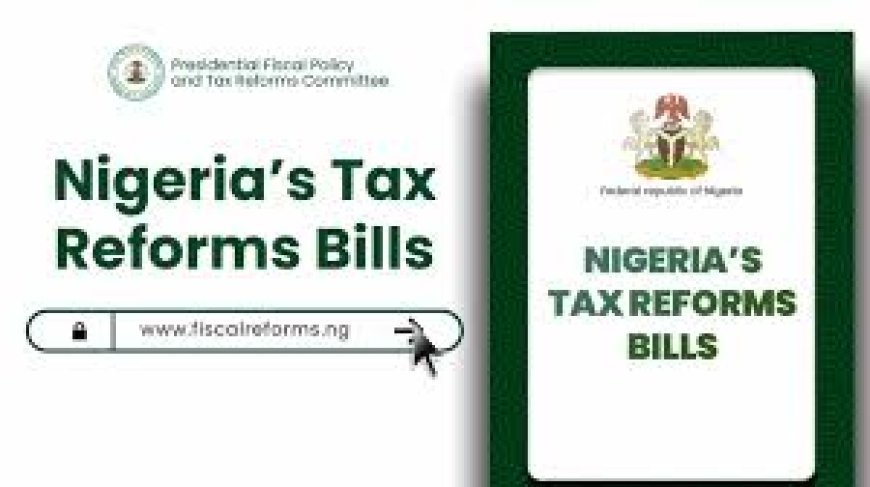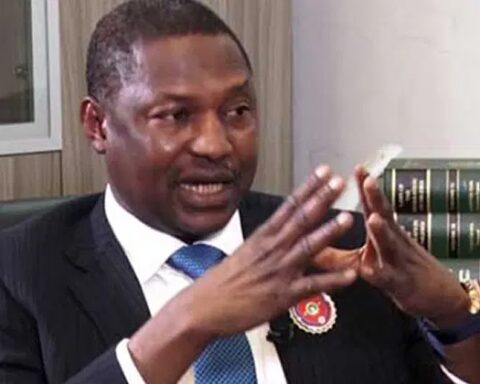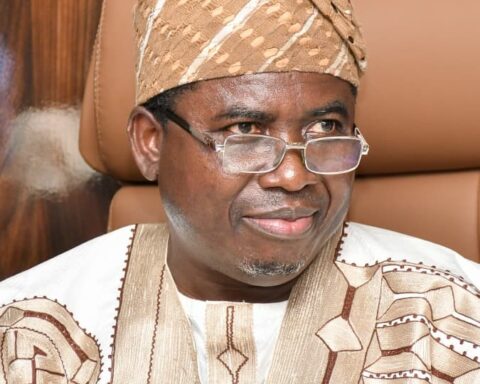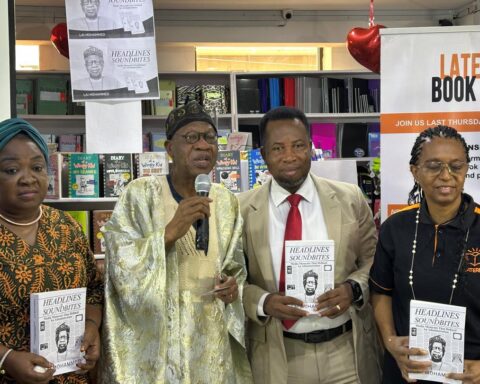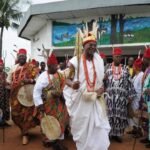From NDUJIHE UGWU, Abuja
A tax expert, who prefers to be identified simply as COK, has tasked South East leaders on identifying aspects of the President Bola Tinubu tax reform bills before the National Assembly, which may adversely affect the economic interests of the zone and to which they may, therefore, have to raise objections.
President Bola Tinubu had, on October 3 this year submitted four tax reform bills to the National Assembly for consideration.
In a letter read during their respective plenary sessions by Senate President Godswill Akpabio and Speaker of the House of Representatives, Tajudeen Abbas, on Thursday, the President explained that the bills were drafted to align with his administration’s goals.
The proposed bills include the Nigeria Tax Bill 2024, which aims to establish a comprehensive fiscal framework for tax regulation.
The Tax Administration Bill seeks to provide a clear and concise legal structure for managing taxes in Nigeria to reduce disputes and enhance efficiency.
However, the proposals have since sparked a cacophony of for-and-against reactions to the bills, culminating in the early stage of the debate in the National Economic Council (NEC), chaired by the Vice President, asking the president to withdraw the bills for more consultations before returning them to the National Assembly for consideration. The President turned down the request, insisting the National Assembly must go on and consider the bills.
But even the National Assembly, usually pliant to every demand of the president, is yet to completely comply with the president’s demand, as members are under pressure from their constituencies not to endorse tax laws that may end up impoverishing their parts of the country all the more.
In a brief on the core provisions of the bills, which he sent to some stakeholders, a copy of which Daily Query obtained, COK urged South East business and political leaders to take “a second, more critical” look at the tax bills with a view to gaining better understanding of their core revenue generation thrusts so as to be able to make informed decisions on the matter in the economic and political interest of the zone.
“It is looking like the North versus Tinubu with regard to the tax bills; it is as if only the North has objections to certain provisions of the bills and voicing such objections but I don’t think that is the case. My question, then, is, why is the South East practically saying nothing?” COK queried.
According to the tax expert, contrary to the widely held impression that only the North has issues with the tax reform bills, “the truth is that the East too and perhaps any other zone that may so identify their regional interest, have issues with the tax bills,” COK declared.
“I have been on this tax reform bill for some time now but my worry is heightening by the day. One honourable member almost suggested that my worries are likely to be scaremongering. But the truth is, tax experts filled with Tinubu’s apologists and 90% South Westerners worked on the bill and hid so much into the bill which will put Lagos and Ogun into economic advantage slightly short of extortion from other states. And our SE Governors and legislators have not set up a tax study group or even hired global tax experts even if they have disdain for Igbo experts,” he said.
Adverting his mind to a particular aspect of the bills, COK pointed out that the provision on VAT, for instance, is probably the most contentious, and not just because of the humongous increase of VAT from 7.5 per cent to 15 per cent in the new bills.
“Let us take VAT as an example,” COK stated. “VAT is the tax charged on consumption of goods and services. By the reform bills, 60% of the VAT will go to the State of collection. This sounds attractive right? But see where the problem is. I will use First bank, MTN and Chicken Republic as case studies.”
“First, First Bank,” he added. “Now consider this: the registered address of First Ban in CAC or FIRS is 35 Marina Lagos. However, the First Bank has 15 branches in Anambra. In the course of rendering bank services, First Bank collects VAT from its branches. But the way it is right now, the VAT collected from the 15 branches of the First Bank in Anambra is credited to Lagos because it is the registered office of the bank. Thus, if First bank collects N500m as VAT from Anambra, 60% of it under derivation will go to Lagos. And this is replicated in the other States in Nigeria.”
COK observed that what the Tinubu tax advisers, all of who are from the South West, did was to substitute the old TAX ATTRIBUTION with TAX DERIVATION as the core determinant ab initio of who collects what and where and who gets what as a result.
In other words, in a rather very clever, unobtrusive but dubious way, they have substituted WHO collected what (tax attribution) with WHERE it was collected (VAT derivation) as the first and only determinant of the VAT sharing formula, COK explained, adding that WHERE has become more important since most decisions with regard to companies’ revenue generation and expenditure are made at headquarters, “and Lagos, as we know, are the headquarters of most companies in Nigeria.”
“Again, consider MTN with its registered office in Lagos. But as of 2021, it had about 3m voice subscriptions in Anambra. MTN collects VAT from the telecom services rendered to about 3m subscribers in Anambra on a daily basis. Let’s say it collects N700m monthly from Anambra subscribers and credits this amount to Lagos state. And by the reform bill, Lagos will collect 60% of it,” COK further explained.
“Now apply the principle to all the banks, breweries and mineral water bottling companies. You should be able to understand what the tax reform bill with regard to VAT plans to do.”
Noting that this is one of the areas in which the tax reform bills will adversely affect the South East, COK urged the zone’s leaders to raise necessary objections because they have sufficient grounds for such objections – before it is too late.
As to whether there is a solution to the development, COK said an emphatic “yes”, noting that “the proper thing as it is done everywhere in the world and should be done in Nigeria is what we call TAX ATTRIBUTION to the area of collection before DERIVATION.”
“It is after TAX ATTRIBUTION that you should now talk about derivation. Using the above scenarios of First bank and MTN, the VAT collected by FIRS from the 15 branches of First Bank in Anambra will be first credited to Anambra State account with FIRS. That is tax attribution to the area of consumption. Also, the VAT collected by MTN from the 3m subscribers in Anambra will be credited to the Anambra State account with FIRS. And by the new bill, 60% of collections from MTN and the First Bank in Anambra will now be given to Anambra by way of derivation. This principle should be applied in all the states of the federation,” COK stressed.
“This is what we mean by tax attribution to the area collected before derivation. The tax reform bill must include proper attribution of tax to areas of collection before derivation or else, it will become extortion from the SE and SS. Sadly, with their propaganda, they will tell you how they generate more revenue than the 35 States of the federation put together and we run with it.
“The publication of the dangers of this tax reform bill has been on for days. This is the third publication on this and if this bill shortchanges the SE, I want this generation of Igbo to know that our legislators and Governors were given enough notice and they chose to ignore it.
“I personally give my tax expertise free of charge here and it is worth N200m in consultancy fees but I chose to forgo it but to alert our leaders to what may turn out to be the heist of the century!”
